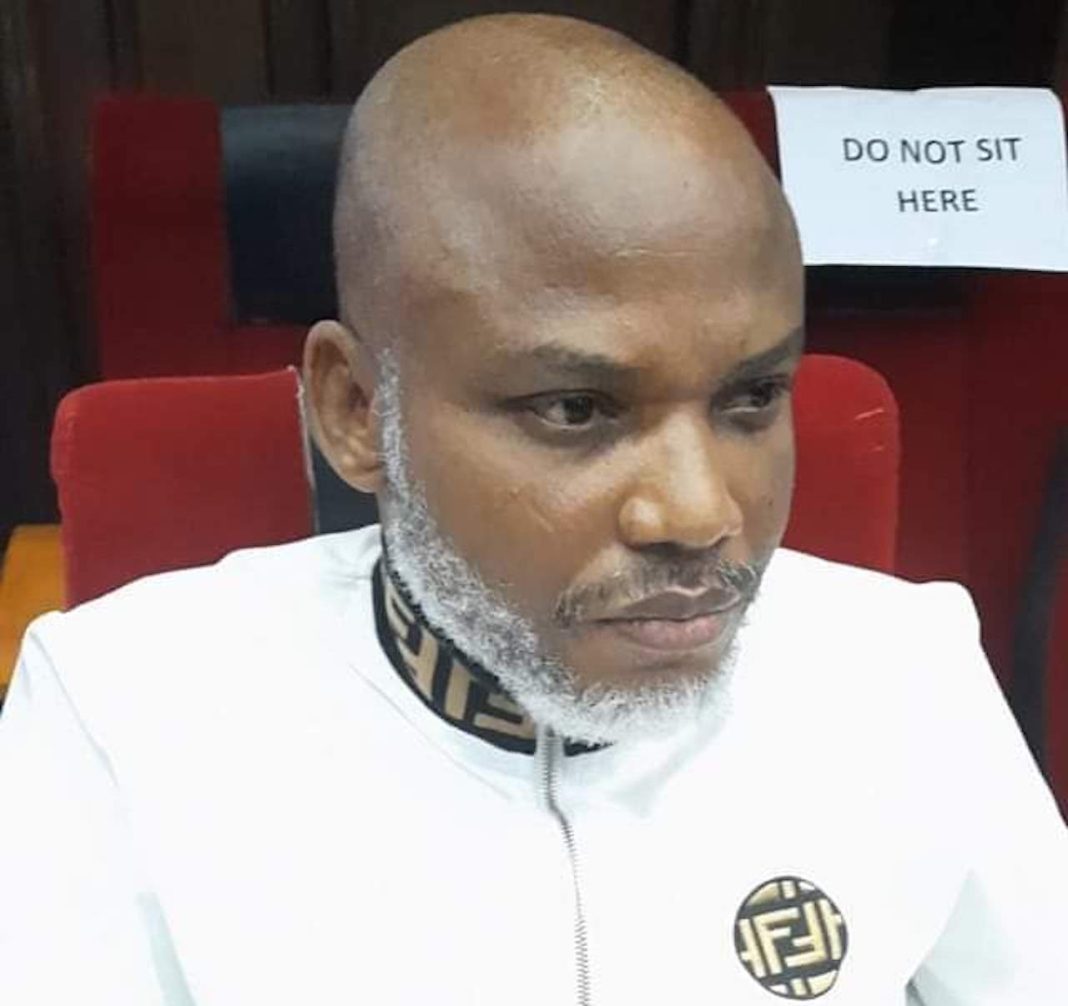The highly anticipated judgment in a celebrated capital offence trial for Treason of IPOB Leader, Mazi Nnamdi Kanu, has been delivered, prompting a sharp legal analysis from Dr C. C. Nwadigo (LLB (Hons), LLM (LAW), PDGE (EDU), PH. D (LAW)).
Nwadigo’s opinion focuses on the Defendant, Nnamdi Kanu’s highly unusual conduct late in the proceedings, suggesting the outcome was almost inevitable.
The trial, which captured national attention, saw Nnamdi Kanu take the extraordinary step of sacking his entire legal team, including four Senior Advocates of Nigeria (SANs), immediately after the Prosecution concluded its case and following the Court’s ruling against the Defendant’s ‘No Case Submission.’
“What is the wisdom of a passenger in a flight sacking the Pilot in a turbulent flight and opting to fly the Aircraft without prerequisite skills?” Nwadigo questioned, highlighting the perilous nature of the Defendant’s decision.
Nwadigo emphasised that the Court had ruled the Defendant had a case to answer, making the subsequent refusal to mount a defence highly problematic.
The Defendant was granted six days to prepare his defence and call witnesses, a crucial period which he reportedly failed to utilise.
He also declined the Court’s offer of assistance from the Legal Aid Council.
The expert noted that the constitutional Right to Fair Hearing (Section 36) is waivable if a defendant “deliberately fails, refuses and neglects to utilise” the facilities and time granted.
The Court even allowed the Defendant and his team to use the Court Hall for preparation, acknowledging that the detention facility was “not conducive.”
The core of the legal analysis suggests that by failing to call defence witnesses to contradict the prosecution’s “weighty evidence,” the Defendant effectively rested his case on the prosecution’s own evidence, despite the earlier ruling that he had a case to answer.
“This is very dangerous in Law,” Nwadigo submitted.
The lawyer also criticised the Defendant’s conduct post-sacking his lawyers, noting that his decision to “pretend as if he is a lawyer,” refiling dismissed motions (an abuse of court process), and creating “drama” and “shouting” in court was “irritating to the Judge.”
The unruly behaviour was also cited as a potential factor.
“For a defendant allegedly accused of a violent crime, to manifest a violent attitude in Court must have angered the Judge who stated in his Judgment that he begged the Defendant in the name of God.”
Nwadigo concluded that the judgment was “not surprising at all” and compared the situation to “a candidate who did not write anything in his answer sheet during an examination.”
He also raised questions about the announced intention to appeal: “Is he going to appeal the judgment through his sacked lawyers or by himself?”
Despite his objective legal analysis, Nwadigo concluded with a humanitarian appeal.
“In the final analysis, I will appeal to the President of the Federal Republic of Nigeria to exercise his constitutional power of prerogative of mercy to our brother to regain his freedom.”



